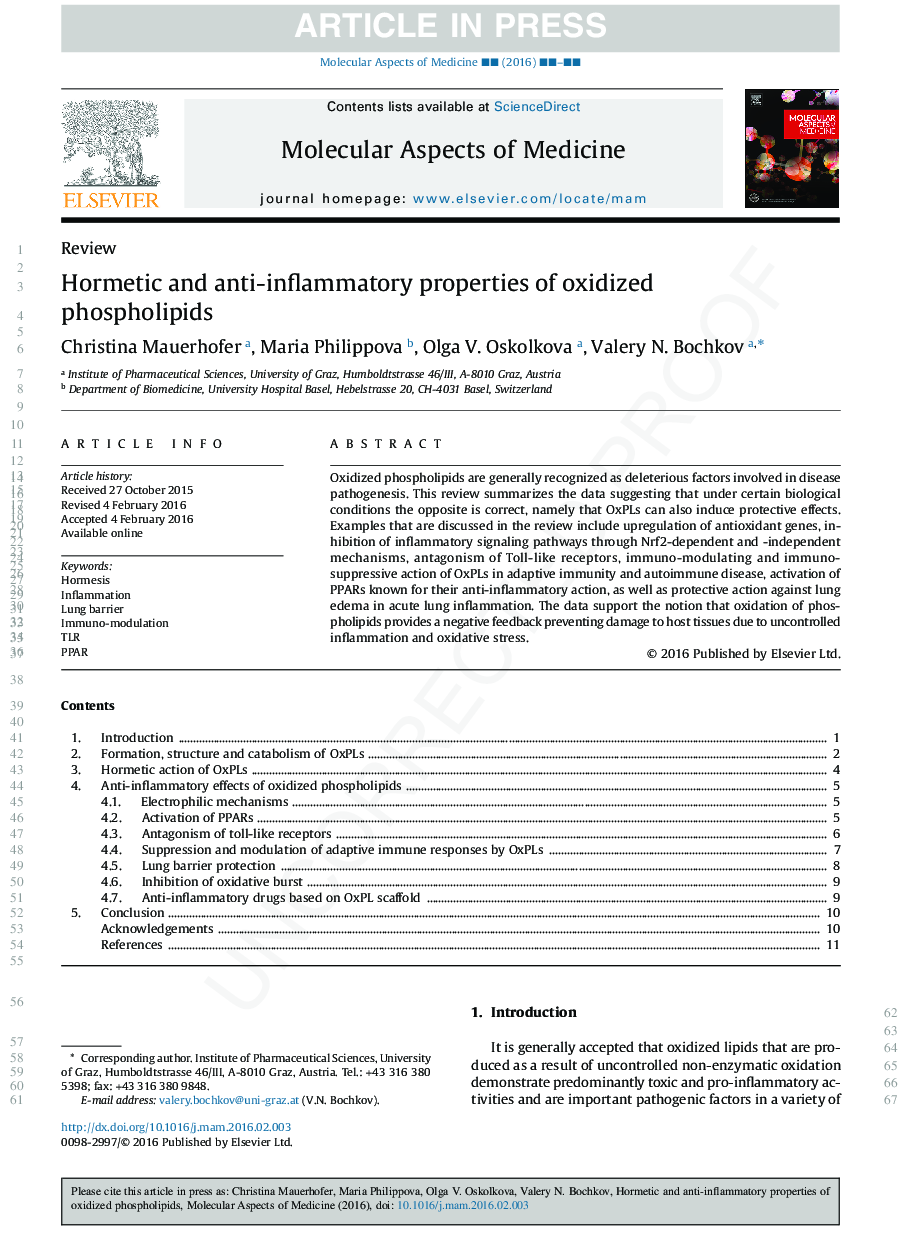| Article ID | Journal | Published Year | Pages | File Type |
|---|---|---|---|---|
| 8341464 | Molecular Aspects of Medicine | 2016 | 13 Pages |
Abstract
Oxidized phospholipids are generally recognized as deleterious factors involved in disease pathogenesis. This review summarizes the data suggesting that under certain biological conditions the opposite is correct, namely that OxPLs can also induce protective effects. Examples that are discussed in the review include upregulation of antioxidant genes, inhibition of inflammatory signaling pathways through Nrf2-dependent and -independent mechanisms, antagonism of Toll-like receptors, immuno-modulating and immuno-suppressive action of OxPLs in adaptive immunity and autoimmune disease, activation of PPARs known for their anti-inflammatory action, as well as protective action against lung edema in acute lung inflammation. The data support the notion that oxidation of phospholipids provides a negative feedback preventing damage to host tissues due to uncontrolled inflammation and oxidative stress.
Related Topics
Life Sciences
Biochemistry, Genetics and Molecular Biology
Biochemistry
Authors
Christina Mauerhofer, Maria Philippova, Olga V. Oskolkova, Valery N. Bochkov,
